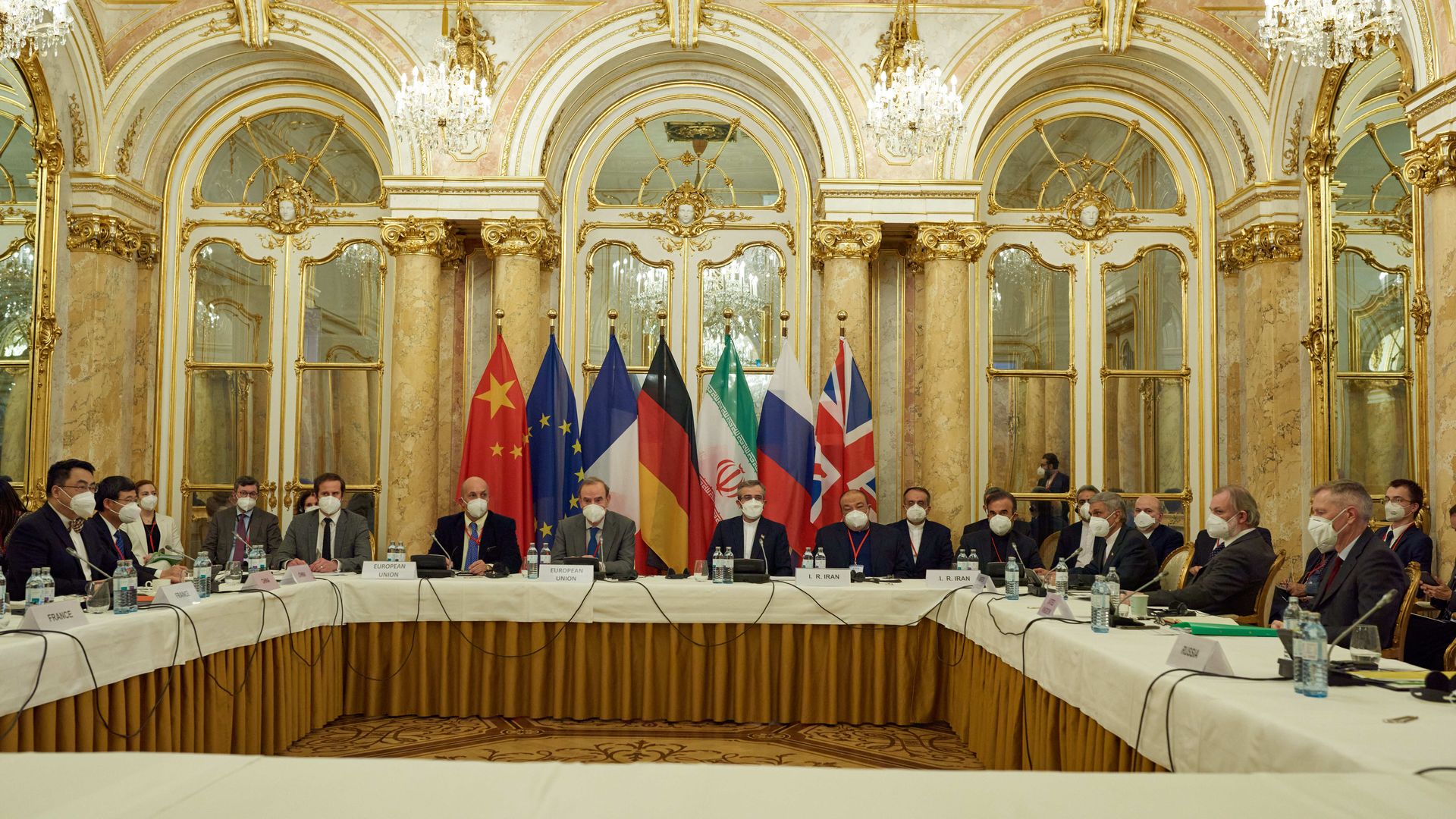U.S. sees path for nuclear deal with Iran "if decisions are made quickly"
Add Axios as your preferred source to
see more of our stories on Google.

Negoiators meet in Vienna on Nov. 29, 2021. Photo: EU Vienna Delegation/Handout/Anadolu Agency via Getty Images
The Biden administration sees a path to a deal in the Vienna nuclear talks, but Iran must make “tough political decisions now” or face an escalating crisis, a senior State Department official told reporters Monday.
Why it matters: The comments are another sign that the Biden administration is somewhat optimistic as nuclear negotiations in Vienna get closer to a decision point. Last week, White House Middle East coordinator Brett McGurk said the U.S. and Iran are “in the ballpark” of a possible deal.
State of play: Biden administration officials have set the end of January or beginning of February as an unofficial deadline for the talks, in large part because they believe Iran's nuclear advances will soon render the 2015 deal ineffective.
- In recent days, negotiation teams held consultations about the way forward.
What they're saying: The State Department official, speaking to reporters on the condition of anonymity, said the talks are entering "the final stretch" this week.
- "There are still significant gaps but we can see a path for a deal if decisions are made quickly by Iran," the official stressed.
- The official reiterated that the U.S. will only be able to continue talks for a few more weeks, otherwise the Iranian nuclear program will be too advanced.
Iran’s foreign ministry spokesperson Saeed Khatibzadeh separately on Monday said the Vienna talks have made significant progress.
- “There are still important issues left in the field of sanctions removal ... Progress [made] must be acceptable in the fields of verification and assurances," he added.
What’s next: The State Department official said the Biden administration is ready to hold direct talks with Iran, stressing such negotiations will increase the chances for a deal.
- "It will be unfortunate if we lose the chance for a deal because there were no direct talks," the official said.
- While Iranian officials have so far refused to hold direct talks with the U.S., they have in recent days floated the possibility of agreeing to move from talking indirectly through European mediators to sitting face-to -face with U.S. negotiators.
Go deeper: U.S. and Israel hold Iran strategy session on nuclear deal decision
